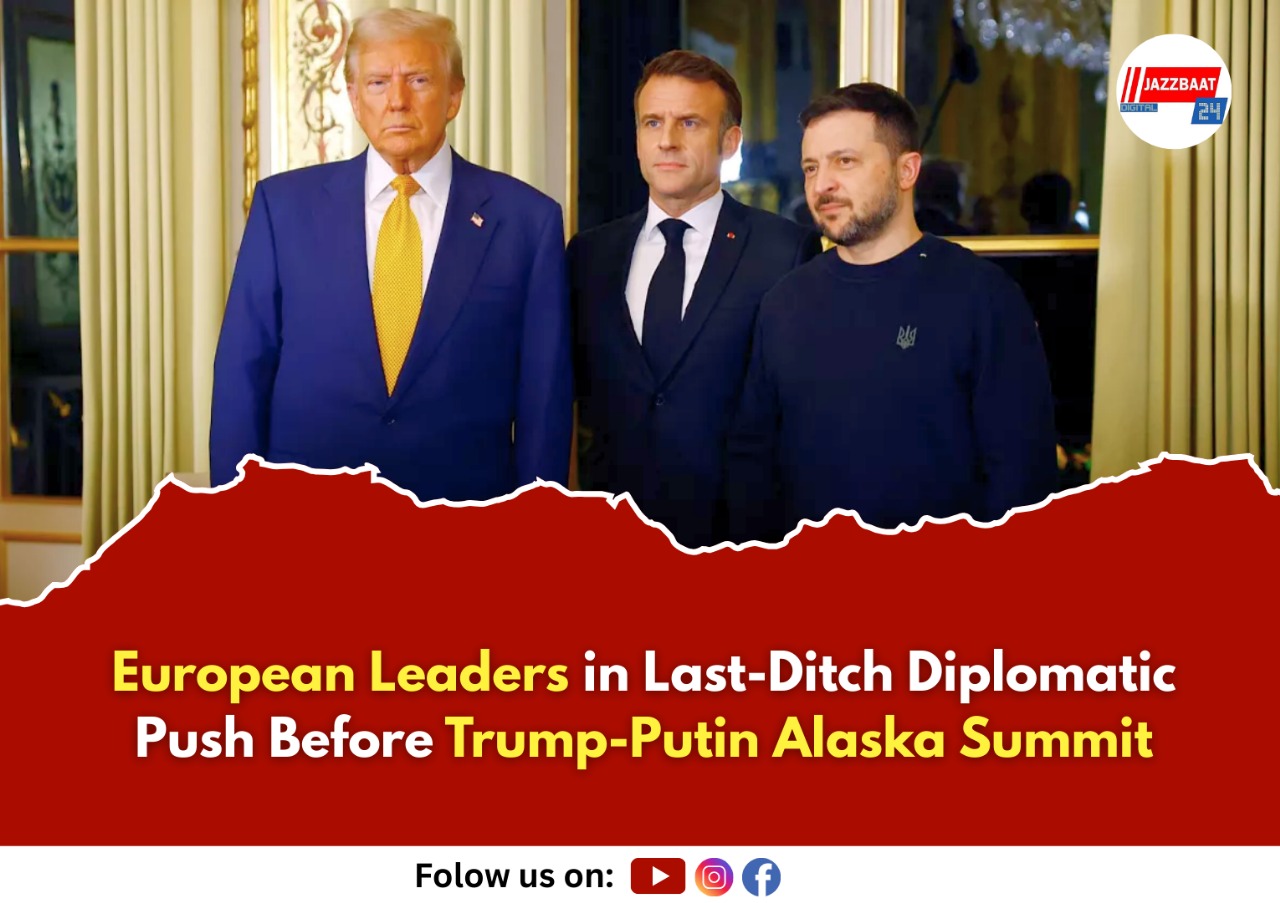
High-stakes calls aim to influence US position as Ukraine's future hangs in balance
European leaders are scrambling to coordinate their message ahead of President Donald Trump's highly anticipated meeting with Russian President Vladimir Putin in Alaska this Friday, in what could prove to be one of the most consequential diplomatic encounters since the Ukraine war began.
Ukrainian President Volodymyr Zelensky will join a virtual summit today with key European allies and Trump, traveling to Berlin to stand alongside German Chancellor Friedrich Merz as they make their case for Ukraine's territorial integrity. The unprecedented show of unity comes as concerns mount that Trump could emerge from his one-on-one meeting with Putin having made concessions that undermine Ukraine's position.
"This could be one of the most consequential phone calls in years for Europe and Ukraine's future," said one diplomatic source, reflecting the anxiety rippling through European capitals.
The calls, scheduled throughout the day, represent what many see as Europe's last chance to influence Trump's approach before he sits down with Putin. Participants include British Prime Minister Keir Starmer, French President Emmanuel Macron, and NATO Secretary General Mark Rutte, among others a diplomatic coalition dubbed "Team Europe" by observers.
At the heart of their concerns lies Trump's previous suggestion that any peace deal might involve "some swapping of territories." Zelensky has firmly rejected this approach, warning that ceding land to Russia would only provide Moscow with "a springboard to start a future war."
The Ukrainian leader's stance has hardened following Russia's recent indication that it would consider a ceasefire only in exchange for Ukraine withdrawing from parts of the Donbas region it still controls. Russia currently occupies just under 20% of Ukrainian territory.
European officials are particularly wary given Trump's track record with Putin. During their 2018 Helsinki summit, Trump emerged appearing "dazzled by the Kremlin leader," as one analysis noted, even contradicting US intelligence assessments about Russian election interference.
"Trump alone in a room with Putin is a recipe for disaster," warned former officials, pointing to the lack of advisers expected to accompany the US president to Alaska.
The White House has attempted to lower expectations, describing Friday's meeting as a "listening exercise" and "fact-finding mission." However, Putin is expected to push for maximum advantage, potentially presenting Trump with proposals that European leaders fear could become a "fait accompli" imposed on Ukraine.
Adding to the diplomatic complexity, Hungary broke ranks with its EU partners, refusing to sign a statement supporting Ukraine's right to determine its own future. Hungarian Foreign Minister Péter Szijjártó even criticized Zelensky directly, arguing Ukraine would have been "better off" pursuing peace talks earlier.
Meanwhile, the human cost of the conflict continues to mount. Overnight attacks killed three people in Ukraine, while both sides report ongoing military actions across the front lines.
As European leaders prepare for what they hope won't be their final opportunity to shape events, the stakes couldn't be higher. The outcome of this week's diplomatic marathon could determine not just Ukraine's future, but the broader security architecture of Europe itself.
The world will be watching Alaska on Friday.